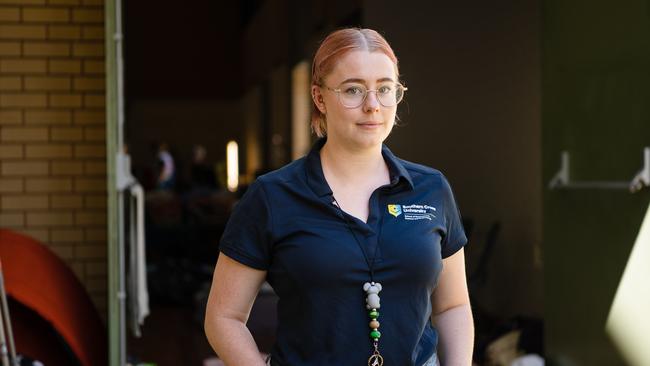SCU student of the year selflessly helped out in Lismore floods
Southern Cross University has chosen Marion Bailey, who worked selflessly to help out in the Lismore flood emergency, as its 2022 student of the year.

Southern Cross University has chosen Marion Bailey, a PhD student who worked selflessly to help out in the Lismore flood emergency a year ago, as its 2022 student of the year.
Ms Bailey, who is doing her doctorate in human evolution, put her research aside to join in the flood response.
She immediately got to work at an evacuation centre which was set up in the gym on the Lismore campus to solve a growing problem – knowing which people had been safely evacuated and who was still awaiting rescue.
Her task was to help bring order to the chaos by cross referencing the names of people in the centre with the active rescues and calls for help.
The huge scale of the flood emergency meant that the work went on for days.
“The rescued people just kept piling in. Volunteers turned up with whatever they had, fuel, food, blankets,” Ms Bailey said.
“On the fourth day we had a mother with her four children and two dogs choppered in from around Bungawalbin. They were soaking wet and had been literally clinging onto a roof for days. The children were in shock.

“I took one 70-year-old gent home to our student unit so he didn’t have to sleep on the floor. There were people who were dealing with mental health issues and their meds had been washed away. People who were deeply, deeply traumatised. We had to try and keep the
calm.”
Many students at the university also found themselves homeless. “I had as many as I
could fit sleeping in our unit, but one student slept in her office for a month. There was just nowhere else to go,” Ms Bailey said.
The flood emergency was a very different experience to her doctoral research in archaeology. Ms Bailey is analysing teeth of early human species which can reveal what our ancestors ate, how they lived and even the level of consumption of trace elements such as lead in water.
She is also studying the early life behaviours of a genus of ape, the Gigantopithicus, which went extinct about 300,000 years ago.
“The kind of work we are doing has many applications. There’s been great research coming out looking at the role of trace elements both in their relationship with, and detection of disease for example,” she said.
“Paleopathology is one of my greatest loves, understanding for instance what mummies died of, and how the diseases developed – I love it.”




To join the conversation, please log in. Don't have an account? Register
Join the conversation, you are commenting as Logout